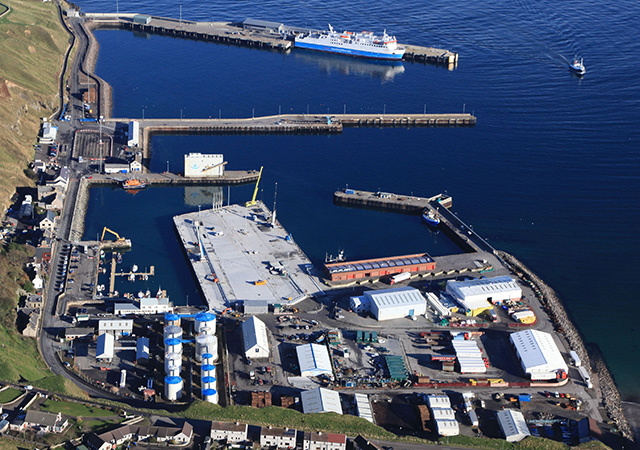
A Highland logistics firm is planning to add to its workforce after agreeing to extend its activity at a Caithness port.
Wick-based Hugh Simpson Contractors said yesterday it would support NorSea’s operations at Scrabster harbour after the Norwegian business previously announced plans to develop the site.
Simpsons, which employs 47 people across the north, said the agreement with NorSea would lead to further recruitment thanks to more crane, haulage and stevedoring work at the port.
Director Hugh Simpson said that, due to rising renewables work and the emergence of major oil and gas projects west of Shetland, he expected Scrabster to be increasingly busy in the years ahead, adding: “Scrabster is ideally placed to service the vessels which will operate in the region and in existing fields in the northern part of the UK continental shelf.
“As the UK’s most northerly mainland port, we can provide all the services they need close at hand and we are well connected by air, sea, land and rail to other parts of the country.”
Simpsons has been operating at Scrabster and Wick harbours since 1964, when the company was set up by the late Hugh and Catherine Simpson as a supplier of agricultural limestone to local farmers.
Its deal with NorSea follows the Norwegian company’s agreement with Scrabster Harbour Trust to develop the port into a new supply base serving the oil and gas industry.
NorSea, based at Tanager, near Stavanger, said the project would lead to major investment and jobs in Caithness.
NorSea’s nine supply bases in Norway each host between 40 and 60 companies and the smallest, in the far north of the country, employs about 30 people directly and 30 indirectly.
Parallels have been drawn between NorSea’s northerly “Polarbase”, near Hammerfest, and Scrabster because of its extremely remote location.
NorSea employs about 700 people and turns over about £278million a year.
Its Norwegian bases provide services from warehouse, workshops and storage facilities to engineering, construction, lifting equipment, inspections, machining and waste handling.
It is expected the Scrabster site, which has benefited from investment worth more than £35million since 2001, will develop along similar lines.